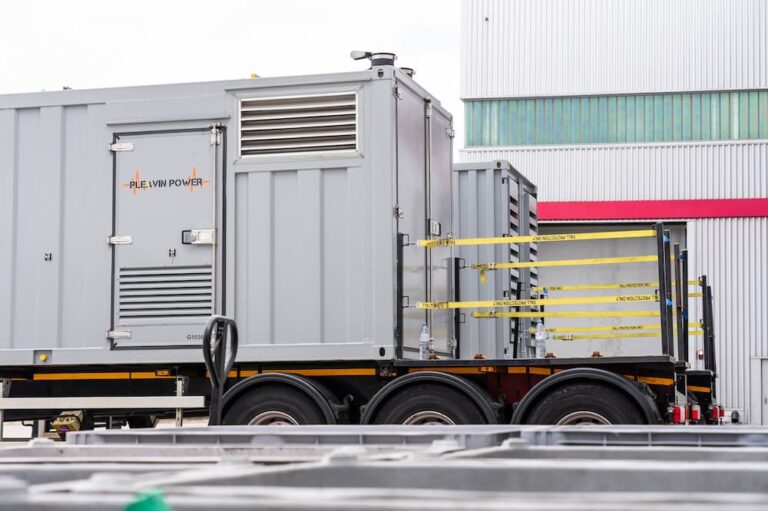A frequent question that we get asked by people is ‘Can you use a generator in the rain?’ The reason is the fact that generators are often associated with equipment that you use during times of crisis – one being extreme weather storms that could affect your power sources.
While we recommend that you don’t attempt to run your portable generator in the rain, sometimes the situation can leave you having to use your generator in rainy conditions – so if you are attempting to do so, it’s extremely important that you follow safety regulations and try to keep it as dry as possible when running.
If you are someone who suffers from frequent power outages due to extreme weather conditions, the perfect solution to getting well-needed power during times of crisis is through generators as they allow you to power appliances so you can get on with your everyday life as normal. Read on to learn more about using a generator in the rain.
Can My Standby Generator Run In The Rain?
Standby generators are powerful pieces of equipment that are designed to power the whole of your home when it recognises that your power source has gone down. There are significant differences that you can find when comparing a standby generator and your portable generator.
If you have a standby generator installed in your home, then you should not worry about your standby generator running in the rain as it will suffer no problems due to its design. The reason for this is that standby generators are designed with protective covers that help defend against extreme weather conditions such as heavy rain, snow and sleet – making them a brilliant investment if you require power in your home during testing times.
If you are worried about that instant rush to the gas station when a sudden power outage hits your local area, then it might be in your best interest to invest in a standby generator for your home. Standby generators often provide enough energy when topped up to run your home for several days without any problem, and can get you through the longest power outages.
How To Protect Your Portable Generator In The Rain
Now that any worries you may have about your standby generator being able to run in the rain have been put to bed, it’s time to learn how to protect your portable generator in the rain.
If you have or are looking to purchase a portable generator ready for sudden emergencies then it is important that you know if you can run your portable generator during rainfall.
Before purchasing a portable generator, you may have discovered that the manufacturer’s guidelines state that you shouldn’t attempt to run your portable generator when it is raining. This is because the water can end up seriously damaging the generator to the point it won’t be able to run, or pose a potentially hazardous risk to you and others around you, as generators operate by running on flammable flames.
Generators are specifically designed in order to generate a powerful voltage – and if moisture somehow happens to find its way into the outlets or gets in the engine of the generator, you run the risk of electrocution or even an explosion. It’s important that you do not let your portable generator get wet or run with no protection over it.
Portable generators are okay to be stored in a safe place, but you should never attempt to operate them while indoors. The purpose of a generator is to create needed electricity in order to power appliances such as your electric devices, lights and many more.
However, for it to generate this electricity, a portable generator must have a fuel source (e.g. propane, gasoline, diesel and more). When these fuels burn, they produce fumes which can quickly start to accumulate heavily and then become toxic when run inside an enclosed space such as a home garage.
Many people believe that they can run their power generator inside the generator if the door is open – but you must remember that carbon monoxide is invisible, and it does not let off an odour or taste. There is a very high chance that it blows inside the confines of your garage into your home – and you’ll have no way of knowing, so it is crucial that you are running your generator outdoors.
Portable generators can be used outdoors in the rain but only with a generator cover. It is recommended that if it is a severe storm with heavy wind along with rain, do not use your portable generator. This is because there is a very high chance that your generator cover can be easily blown off due to heavy wind, which will leave the generator susceptible to water damage from the rain.
There are some tips that you can take when operating your portable generator outside so you can operate it safely and not have to worry about potential water damage. These include: finding a safe, dry space outdoors, adding a protective cover on your generator and making sure the power cord to your home is waterproof. These three tips can help you safely operate your portable generator in the rain!
Conclusion
Generators are super reliable pieces of equipment that can get you through testing times. However, like any piece of equipment, they can break or have potential hazards that can damage it such as water damage.
If you have a generator such as a standby generator, then you won’t have to worry about any potential rain damage due to their solid design. For your smaller models – such as portable generators – there are some steps that we previously spoke about that can help you prevent your generator from suffering from potential water damage from the rain.
We recommend, before running your generator, that you read and follow the guidelines set by your manufacturer to see if your generator is okay to run while in the rain as you could lose your warranty by not following the guidelines set. If you’re looking to purchase a generator, check out our excellent selection. Likewise, we have generators for hire available too.

Jack is the owner of Pleavin Power which was founded in 2017. He has worked in the power industry for over a decade and has an extreme focus on providing a quality service to clients across the UK. This has led Pleavin Power to becoming the market leader in the Critical, Prime & Standby Power markets.








